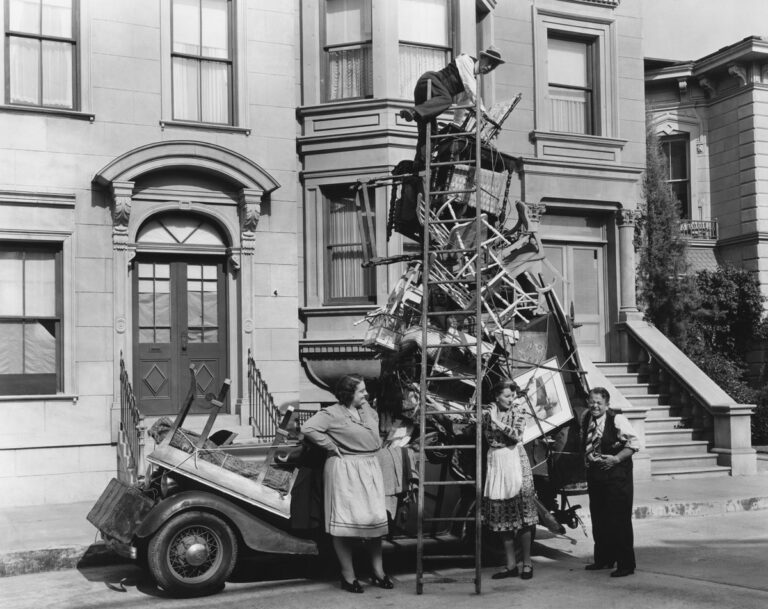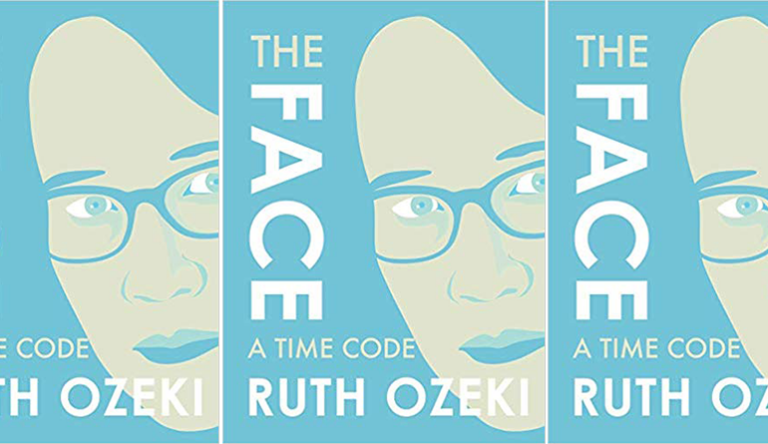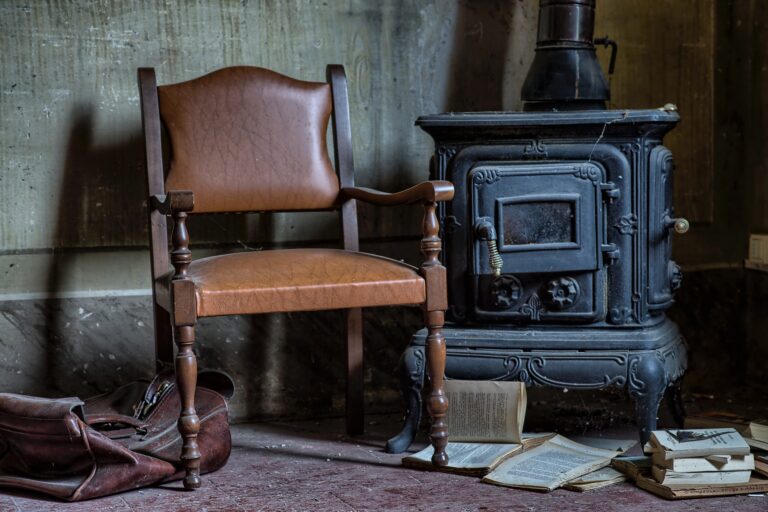“I just went with my gut (and shut down my ego) and let the story tell itself”: An Interview with Mira Ptacin
In the opening pages of Mira Ptacin’s new book The In-Betweens, a blend of memoir and reporting, a medium tells Ptacin that her brother, who died in a car accident as a teenager decades earlier, is giving her a hug. “Now,” the medium says. “Close your eyes, feel the energy. He’s hugging you so tight. Can you feel it?”
Ptacin plays along, but it’s clear what separates her from the medium is more than just her skepticism. It’s the way she trusts the verifiable over her intuition. “I closed my eyes. I told myself to think of my brother. I tried to feel him. I saw the memory of his face in my head …”
It isn’t until much later in the book, during a dowsing session at Camp Etna, a 141-year-old Spiritualist community in Maine, that Ptacin learns that intuition, not reason, guides her own spiritual journey. “By Spiritualist, I don’t mean ‘spiritual,’ as in, I’m not religious, I’m spiritual or I’m trying to meditate more, eat more vegetables, and be more spiritual,” Ptacin writes. “No. Camp Etna is legitimately a religious camp, and Spiritualism (with a capital S) is a legitimate, organized, officially recognized, tax-exempt religion.”
The In-Betweens is an exploration of Spiritualism’s history and its place in the present day landscape of American faith practices. It also shows us, through the personal story Ptacin includes in her exploration of Camp Etna, its mediums, its philosophies, and how Spiritualism can help those still living and grieving after a loved one has died. How the dead are not gone, not forgotten. How they guide and communicate with the ones who need them most.
I recently spoke with Ptacin about writing The In-Betweens, her influences and revelations, and the ghosts she met and released as she researched for this book.
Ellen O’Connell Whittet: You write extensively about the early women of Spiritualism—Kate and Margaret Fox, Mary Ann Scannell Pepper—as well as the women who run Camp Etna today. What was it about these women that made you decide to structure your book around their stories?
Mira Ptacin: These were the women who so blindingly stood out to me in real life, and in what I imagined the narrative of the book to be (and eventually became), for several reasons, and each reason differs according to each character. For instance, the Fox sisters are considered to be the two people who launched the birth of the modern Spiritualist movement. And while Mary Ann Scannell Pepper didn’t quite mark just one single significant date on the Spiritualist timeline, her existence itself was pretty incredible and unknown, and how could I not write about an American woman who was a medium to the Czar of Russia at a time when women were pretty much considered second class citizens? The way I chose which woman to write about at present-day Camp Etna had as much to do with their personality as much as it did with an activity I would participate in with them (séance, table tipping, ghost hunting), and it all had as much to do with chance and luck, too. For anyone who hasn’t read the book yet, what I can say is this: what makes this book stand out is that the main characters and influencers in this 150-year history all happen to be women, which has labeled it a “feminist history,” but really, it’s just history. And because it’s not written about white males [that] doesn’t set it apart from real history–it’s just that so much of what we consider to be history is written about and by white men. This happened. It’s just as legitimate. Its legacy is profound. And yes, this is a history about women.
EOW: Your book is a blend of reporting and memoir, and in some cases the reported stories illuminate something of your own life and the people you’ve lost. How did you conceive of genre blending as you wrote this? Did this genre blending ever inhibit you, or did you ignore such distinctions?
MP: Originally, I had pitched The In-Betweens (my book proposal) to be just as much memoir as it would be history, but nearly all publishers turned it down, turned off by the memoir aspect. The publisher I signed with (and I’m so glad I did—Liveright has been a dream) accepted my proposal with one exception—that I not be in the story, that it not be part-memoir, part-history. And my editor said, You can write yourself in only when necessary. So that’s what I did—and it turned out to be the book I had originally pitched. I believe the reason most editors didn’t want me in the book originally is because the history of Camp Etna and Spiritualism is so fascinating that I needed just to get out of the way and let the story tell itself, but at the same time, how could I write about a séance without being in the room? How could I bear witness to a medium telling me that my deceased brother is in the room without including myself and my reaction (and my senses) [in]to this? I didn’t think of genre boundaries when I was writing any of this, I just went with my gut (and shut down my ego) and let the story tell itself. If I happened to be part of the scene of the story at the time, I wrote myself in. It’s important to constantly be asking one’s self: what is the focus here? Who do we want to come to an opinion—the reader or the narrator? And if it’s the narrator, what is the reason and the motive? Is it to further enhance the ultimate story question/thesis of the entire book?
EOW: The In-Betweens is both highly specific, in that it takes place in a small camp for Spiritualists and mediums in Maine, and generally appealing, in that it deals with the history of America’s relationship with death, and honors all of us who long to know what is on the other side of life. How did the location of Camp Etna become important to the broader history and culture you recount?
MP: A hamlet of Spiritualists, mostly women, in a random wooded area in the middle of Maine, that once had its own train station in which nearly 10,000 visitors would visit each summer. You’d think that the fact that this was Maine would play a major role in the why, but really, it was completely random in the logical reason of its popularity, but I like to think that Maine just has a magical quality to it. You can feel it in the air when you’re here—there’s something otherworldly about the feel of Maine. Camp Etna is a random location, while other Spiritualist communities were strategically located to where major events happened that drew large amounts of visitors—for instance, Lily Dale is not far from New York City, and not far from Seneca Falls, where the first women’s rights convention happened (which drew many women to back the Spiritualist movement). Maine has always been known as Vacationland, which it feels like, so perhaps that’s why so many people were drawn to Camp Etna—because it offered respite—but this question of Why Maine? Why Camp Etna? has been one that I still haven’t been able to answer easily, nor have the historians at Camp Etna either, other than the fact that we can all agree that there is something quite magical that is impossible to deny feeling when on the grounds of Camp Etna. It truly feels as if you’ve stepped onto a different dimension when you’re on the land of Camp Etna.
EOW: Towards the end of The In-Betweens, you get some advice from your own spiritual guide, Phil, about balancing your family, day job, and writing this book. How did you avoid burn-out when writing about things like death and spirits? What advice would you pass on to other writers involved in their own spiritual excavations?
MP: Ha! I didn’t avoid burn-out while writing this book, not because of the topic, but because I am a working mother with two children and two dogs and had a teaching job at a university and a very short deadline while writing this book! My challenge is not so much losing emotional steam, but rather losing sleep and not being disciplined enough to take breaks to keep my life in balance: exercise, sleep, relationships, other interests, etc. But I wonder if that is really possible—can one be so emotionally invested in a project and be able to flip the “on” and “off” switches when the timer goes off? I felt a mad sense of urgency when exploring my understanding of the topics of, well, life after death, that I had to keep going out of fear of not just losing steam but not connecting the dots to my own personal puzzle. Perhaps my next book project will be a lighter subject, or one that I can bridge together slowly, and without an internal need to race to find the answer. With my next book, my fantasy is that I would sit peacefully and let the answers gently arrive. With this one, I felt like a caffeinated anthropologist, excavating an eroding mountain, racing to find the answer before it washed away. And at the same time, you are sleep deprived and have two small children pelting you in the back of the head with foam Nerf gun bullets.
EOW: During a dowsing lesson at Camp Etna, you learn the lesson of intuition being the point, rather than finding the answers. How did you apply this lesson to writing this book? Especially when your subjects could see and know things you couldn’t?
MP: I’m not quite used to listening to my intuition, but really, I think when I’m WRITING, this is the time when I’m honed in on my intuition, rather than reacting to the world’s demands around me. The biggest personal challenge I’ve extracted from the activities I participated in when writing The In-Betweens, as well as the truly important lessons from the mediums at Camp Etna, are that what I think and feel is legitimate and accurate, and that I should try to live at my own tempo, not trying to beat some clock, or make more money, or purchase more things, or keep up keep up keep up. Rather, what I learned from my time at Camp Etna, and while writing this book is to slow down, slow down, slow down. To slow down and just listen. Just listen.
EOW: What books kept you company during the time you spent researching and writing this book? What are some of the things you took from these books?
MP: I had a large swatch of books I devoured again and again, dog-eared and highlighted the hell [out] of strictly for historical research, and then I had my totem books—books that I kept within arm’s reach to offer me encouragement with my craft, with structure, with voice, with genre-blending. These are always my go-to books, for the most part. My big sisters/big brothers, or the authors whose voices have always carried the torch for me, and whatever I’m writing about, they always seem to stay in the rotation. It is the way they compose their sentences, the new kinds of questions they ask, their rawness and realness, their experiments with structure, and really, their originality and genuine voice that always remind me why I’m writing (and how to do it right, as an artist). These authors are: Susan Orlean, Jo Ann Beard, John Steinbeck, James Baldwin, Joan Didion, John McPhee, Maria Rainer Rilke, Clarissa Pinkola Estés, and, most recently, Jia Tolentino.
This piece was originally published on December 20, 2019.


